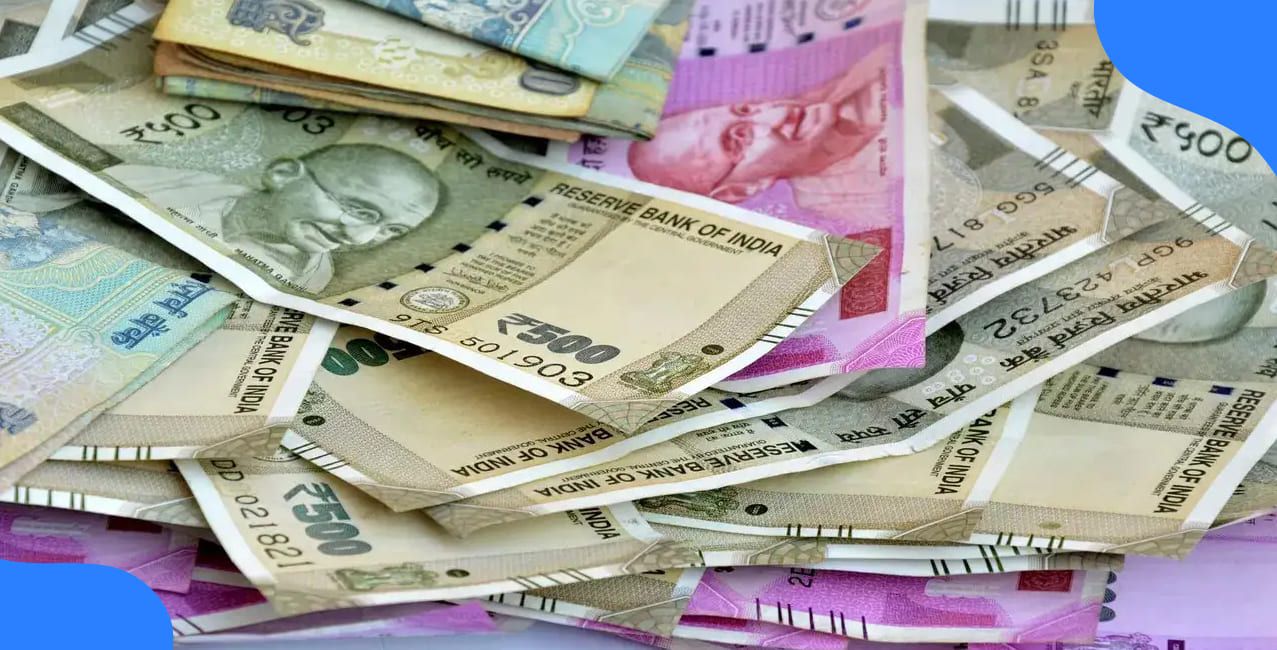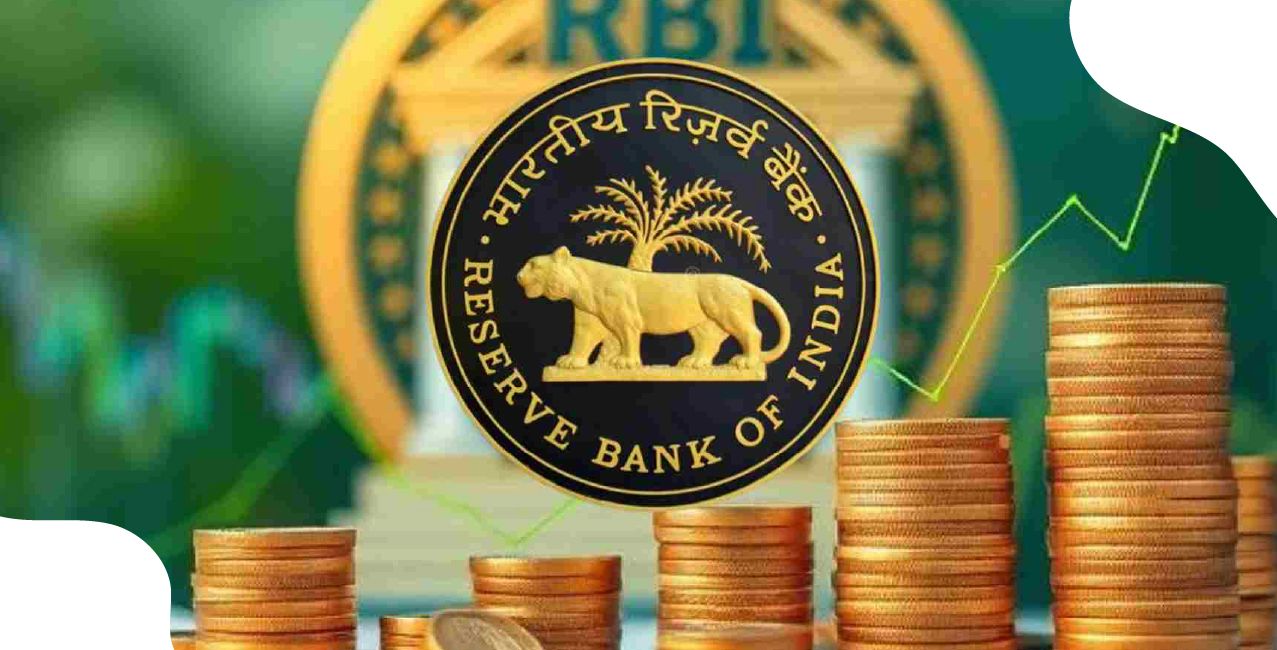RBI Can Return Your Money; Drive To Return Rs 67,270 Crore In Unclaimed Bank Deposits

Check Your Loan Eligibility Now
By continuing, you agree to LoansJagat's Credit Report Terms of Use, Terms and Conditions, Privacy Policy, and authorize contact via Call, SMS, Email, or WhatsApp
India’s central bank starts a three-month mission to track and return dormant balances to rightful owners
How many families know they may have money lying idle in banks, untouched for years? The Reserve Bank of India (RBI) is now asking this very question as it begins a campaign to return Rs 67,270 crore in unclaimed bank deposits.
This effort, announced in September 2025, will run for three months until December 2025. It is meant to connect missing funds with rightful owners, nominees or legal heirs.
RBI Initiative On Unclaimed Bank Deposits 2025
The recent development is part of a wider clean-up. RBI has directed banks to actively trace dormant balances and engage directly with customers. According to the New Indian Express report of September 2025, the value of unclaimed deposits touched Rs 78,213 crore by March 2024. This figure showed a steep rise compared with the Rs 62,000 crore reported in March 2023 in a Parliamentary answer.
In June 2025, the Finance Ministry shared updated numbers in Parliament. Public sector banks held Rs 58,330.26 crore in unclaimed deposits, while private banks accounted for Rs 8,673.72 crore. The combined total stood at Rs 67,003.98 crore, which is now the target of the refund drive.
The picture becomes clearer when banks are compared side by side.
This table shows why the focus is on public banks. State Bank of India alone holds nearly one-third of all unclaimed deposits.
What Counts As Unclaimed Money?
The definition of unclaimed deposits is simple. A savings or current account that has seen no operation for ten years is treated as dormant. A fixed deposit not withdrawn for ten years after maturity is also counted. Even uncollected dividends, interest warrants or insurance proceeds fall in this bucket.
To claim these funds, RBI has set up a digital platform called UDGAM (Unclaimed Deposits, Gateway to Access Information). The portal went live in 2023. By July 2025, more than 8.59 lakh users had registered. According to RBI reports, UDGAM already covers thirty banks representing around ninety per cent of these idle balances.
The claim process has also been made easier. RBI announced in May 2025 that KYC can be updated using video verification, through business correspondents in villages, or at any branch of the bank. This shift removes the need for claimants to travel to the original branch.
The steps for depositors are set out below.
This structured flow cuts down time. Instead of running from one branch to another, customers now have a clear path to reclaim money.
Reserve Bank Of India Unclaimed Money Refund Scheme And Past Coverage
The current refund scheme is part of a broader customer-first push by the regulator. Earlier in April 2024, the RBI issued a circular instructing banks to load ₹100 and ₹200 notes in ATMs to improve access to lower denomination cash. This was reported in detail by LoansJagat in “Major Update: 73% of ATMs now dispense ₹100 & ₹200 notes before RBI’s deadline”. That move, along with the refund scheme, underlines how the regulator is signaling greater attention to everyday banking needs.
On the unclaimed deposits front, growing balances triggered regulatory response. According to public media reports, balances rose sharply from ₹62,000 crore in March 2023 to ₹78,213 crore in March 2024, prompting action in Parliament and among banking authorities. This pace of increase set alarm bells ringing and strengthened the case for a structured refund regime.
Here is a timeline of how the numbers have changed.
The table shows both the scale and the urgency. The RBI initiative on unclaimed bank deposits 2025 is meant to stop this rising curve.
Process For Returning Unclaimed Deposits By RBI
This time the regulator has shifted the burden. Earlier, depositors had to approach banks. Now banks must search, track and reach out. State Level Bank Committees will monitor accounts at state and district levels. Banks will publish lists, run advertisements in vernacular media and even cross-check with death registries to trace heirs.
Here is how the drive has been structured.
The above shows a proactive model. Instead of passive waiting, banks are now expected to act as trackers of idle money.
Unclaimed Bank Deposits Refund Drive By RBI And Government Past Actions
Government rules for unclaimed funds differ by sector. Insurance companies must transfer balances older than ten years to the Senior Citizens’ Welfare Fund. Policyholders can still claim these for up to twenty-five years. In banking, deposits older than ten years are moved to the Depositor Education and Awareness Fund. These remain payable after verification.
The new refund drive is sharper. It sets a three-month time frame and pushes banks to trace families who may not even know money exists in their name.
The contrast is clear when compared side by side.
The above table underlines why this step is different. It is time-bound and banks are not allowed to remain passive.
Conclusion
The Reserve Bank of India’s unclaimed bank deposits refund drive is a reminder that money may be forgotten but not lost. Reports tabled in Parliament through 2023, 2024 and 2025 reveal how dormant funds kept rising.
This new push, with UDGAM and relaxed KYC, gives hope that thousands of families may finally reclaim what belongs to them.
Other News Pages | |||
J&K High Court Imposes ₹50,000 Fine — Must-Read for Borrowers | |||
About the author

LoansJagat Team
Contributor‘Simplify Finance for Everyone.’ This is the common goal of our team, as we try to explain any topic with relatable examples. From personal to business finance, managing EMIs to becoming debt-free, we do extensive research on each and every parameter, so you don’t have to. Scroll up and have a look at what 15+ years of experience in the BFSI sector looks like.
Subscribe Now
Related Blog Post

Home Loan Interest Rates 2025 Deliver Major EMI Relief, Will Borrowers See More Gains In 2026?

Will the Indian Rupee Stabilise in 2026 After a Volatile 2025?

RBI Draft Rules Target Surprise Costs in Overseas Payments
Recent Blogs
All Topics
Contents
Quick Apply Loan
Consolidate your debts into one easy EMI.
Takes less than 2 minutes. No paperwork.
10 Lakhs+
Trusted Customers
2000 Cr+
Loans Disbursed
4.7/5
Google Reviews
20+
Banks & NBFCs Offers
Other services mentioned in this article





